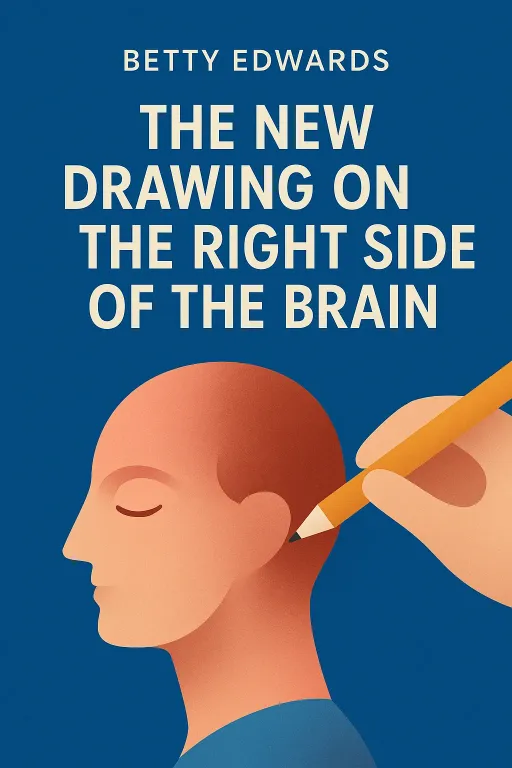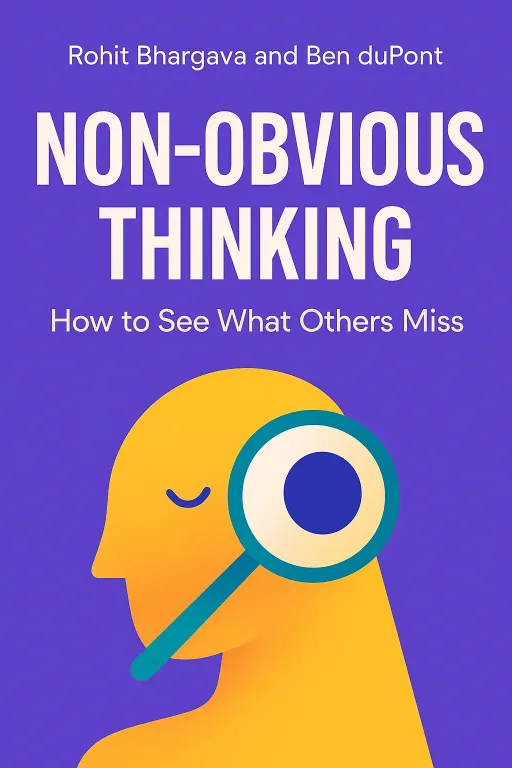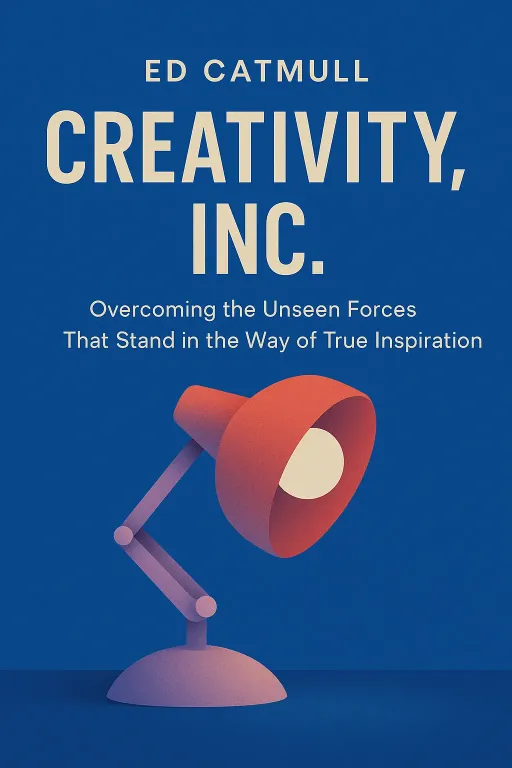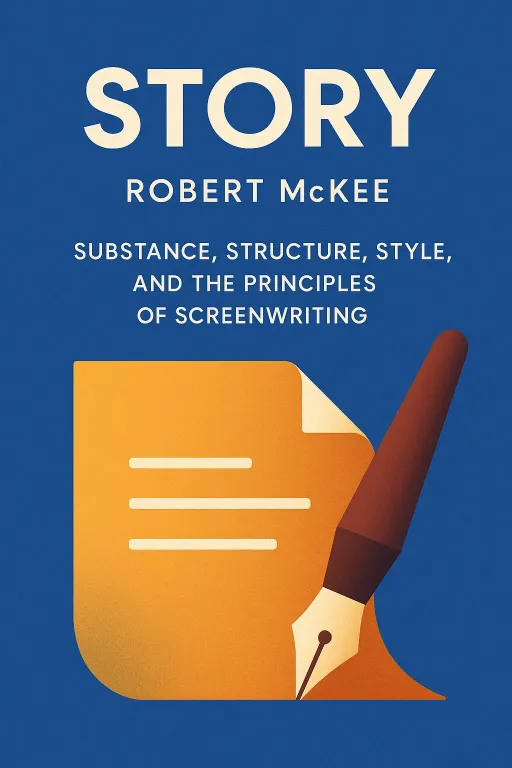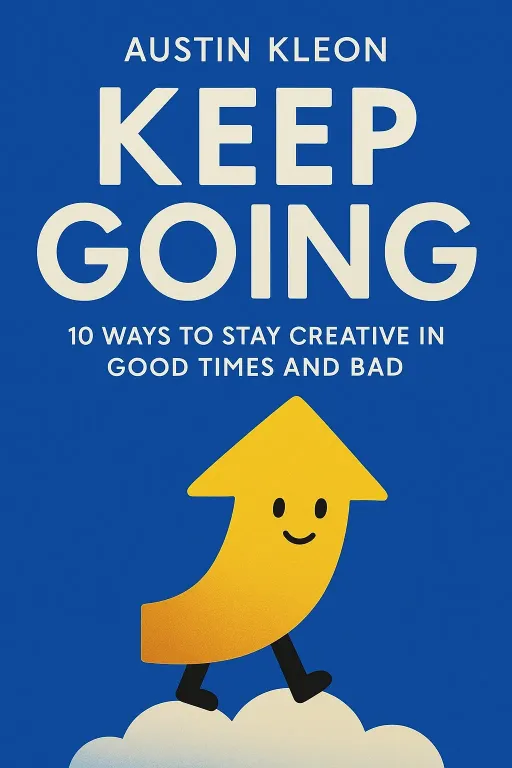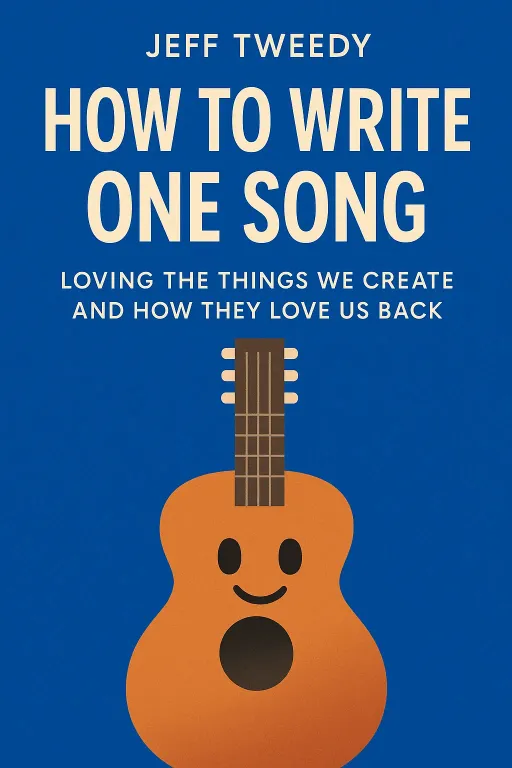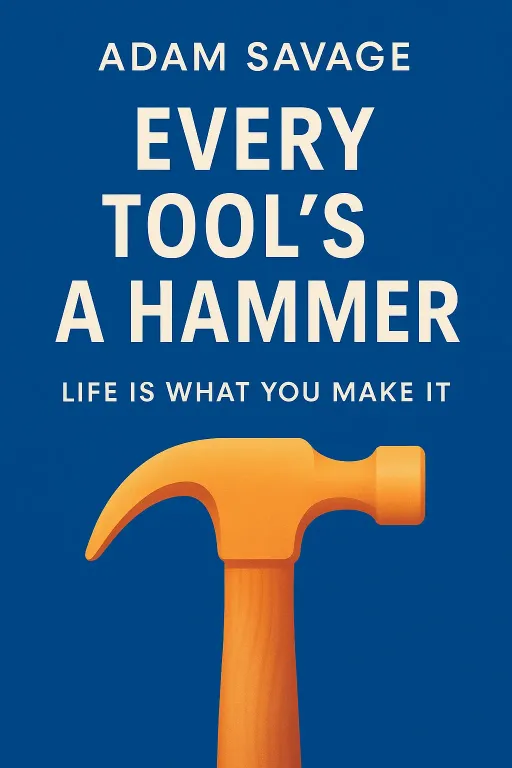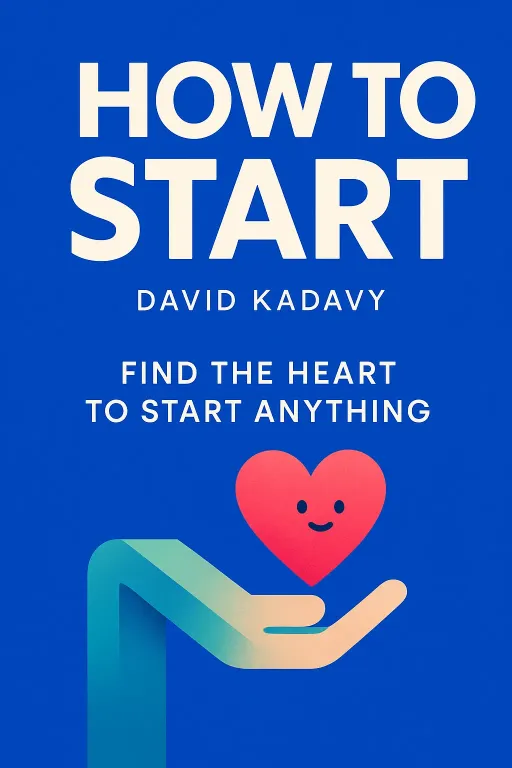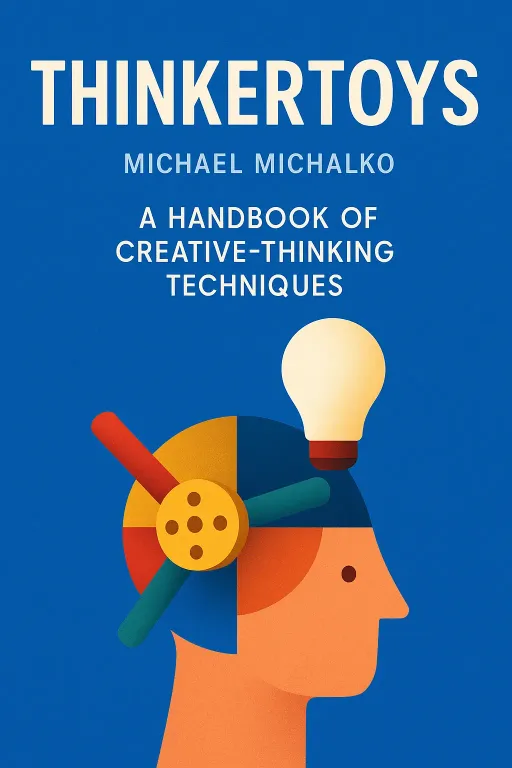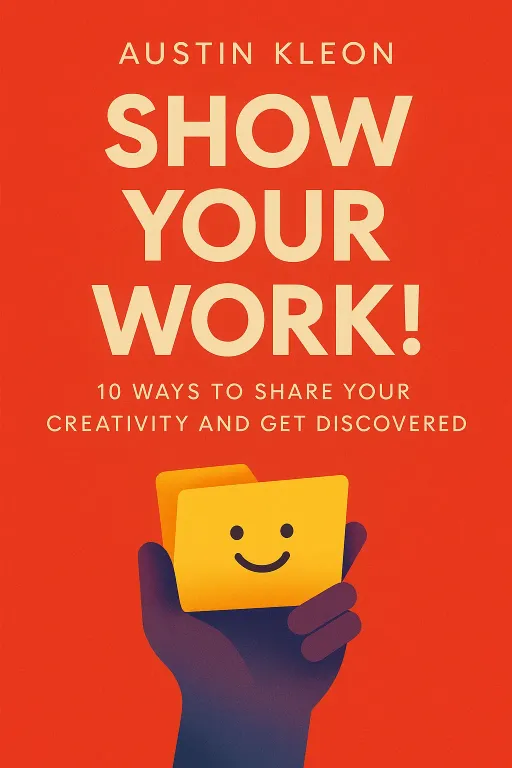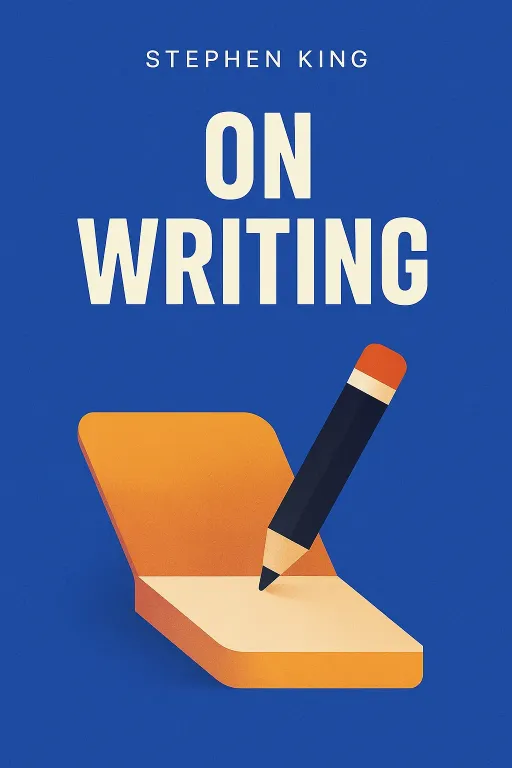
The Writer's Compass: Navigating Creativity with Stephen King's 'On Writing'
9 minGolden Hook & Introduction
SECTION
Nova: Stephen King once made a claim that sounds like pure science fiction: he said that writing is telepathy. Not a metaphor, but actual, direct mind-to-mind communication across time and space. He argues that with the right words, he can make you see a rabbit with the number 8 on its back, sitting in a cage on his desk, even though you're miles and years away.
Jerry: That’s a bold claim. But I think anyone who’s been truly lost in a book or a piece of music knows that feeling. It’s like the creator is speaking directly to you, bypassing all the noise.
Nova: Exactly! It's a wild idea, but it gets to the heart of what creativity is: a profound connection. And for anyone, like our guest Jerry, who's looking to understand and master their own creative process, this is the ultimate question. How do we build that bridge between our mind and someone else's? Welcome, Jerry.
Jerry: It’s great to be here, Nova. That question is precisely why I was so drawn to this book.
Nova: Well, I'm so glad. Because today we'll dive deep into King's 'On Writing' from two powerful perspectives. First, we'll explore the 'Carpenter's Mindset,' focusing on the practical tools and routines he says are non-negotiable. Then, we'll pivot to the 'Archaeologist's Eye,' and discuss the almost mystical act of discovering stories and the synchronicities that lead us to them.
Deep Dive into Core Topic 1: The Carpenter's Mindset
SECTION
Nova: So, Jerry, if we're going to become these creative telepaths, King says the first step isn't magic at all. It's carpentry. He has this fantastic metaphor of the writer's toolbox.
Jerry: The toolbox, right. This is the part that really appeals to my analytical side. It suggests creativity is a system, something you can build and improve.
Nova: It is! And he illustrates it with this wonderful, vivid story from his childhood. He talks about his Uncle Oren, who was a carpenter. King remembers him carrying this enormous, heavy, handmade wooden toolbox. It had three levels, all these different compartments, and it probably weighed a ton.
Jerry: I can picture it. The kind of thing passed down through generations.
Nova: Exactly. And one day, young Stephen is "helping" his uncle. The job is simple: replace one broken window screen on the far side of a house. So his uncle carries this massive toolbox all the way across the yard, sets it down, opens it up, takes out a single screwdriver, fixes the screen, puts the screwdriver back, and closes the box.
Jerry: And of course, the kid asks, "Why'd you bring that whole giant box for one screwdriver?"
Nova: You got it. And his uncle's answer is the core of this whole idea. He says, "It's best to have your tools with you. If you don't, you're apt to find something you didn't expect and get discouraged."
Jerry: That's fascinating. So it's not just about having the right tool for the job you, but for the job you. It reframes preparation as a way to foster spontaneity, not restrict it. You're free to explore because you're not afraid of what you'll find.
Nova: That is such a great way to put it. It's about eliminating creative anxiety. And he pairs this idea of a well-stocked toolbox—your vocabulary, your grammar, your sense of style—with a relentless focus on routine. He tells the story of the novelist Anthony Trollope.
Jerry: Oh, the guy with the postal job?
Nova: That's the one! He worked a full-time job, but he wrote for two and a half hours every single morning. His schedule was so rigid that if his time was up while he was in the middle of a sentence, he would just put his pen down. He'd leave it unfinished until the next morning.
Jerry: So the routine isn't about waiting for inspiration, it's about creating a habit where inspiration knows where to find you. It's like training a muscle. You're telling your brain, 'Okay, it's 8 AM, this is what we do now.' It removes the emotion and the drama from the act of creating.
Nova: It removes the drama! I love that. It becomes a job. A blue-collar job, as King calls it. You just show up, open your toolbox, and put in the hours. You don't sit around waiting for the muse to strike. You invite her to your workshop, which is open for business at the same time every day.
Jerry: It demystifies the whole process. It makes creativity feel less like a lottery and more like a craft you can actually get better at through deliberate practice.
Deep Dive into Core Topic 2: The Archaeologist's Eye
SECTION
Nova: And this is where it gets really interesting, Jerry. Because if you're showing up to your workbench every day with your tools ready... what are you actually building? King's answer is... nothing. He says we're not carpenters in that sense. We're archaeologists.
Jerry: Okay, now you've got my attention. We've built the toolbox, and now we're not using it to build?
Nova: Not to, no. He believes stories are "found objects." He calls them fossils. They're already there, buried in the ground, and the writer's job is to excavate them as carefully and completely as possible.
Jerry: So the story isn't something you construct, it's something you uncover. That completely shifts the pressure.
Nova: Completely! He gives this amazing example of how he got the idea for his novel. He was on a flight to London, dozing off, and he had this incredibly vivid dream. He dreamt about a popular writer who was being held captive by a psychotic, obsessive fan in a remote farmhouse. He said the fan in his dream even had a pet pig named Misery.
Jerry: Wow. The whole concept, just delivered in a dream.
Nova: The whole thing. He woke up, grabbed a cocktail napkin from the flight attendant, and scribbled down as much as he could remember. The story was just... there. It was a fossil, and his dream was the piece of bone sticking out of the ground. It was just waiting for him to start digging.
Jerry: That connects directly to that idea of synchronicity, or what some might call the 'Wod'—that creative force. The routine of the 'carpenter' puts him on the plane, in that receptive, half-asleep state of mind, and then the 'archaeologist' finds the fossil. One enables the other. The dream isn't random; it's the result of a mind that's been primed to look for stories.
Nova: That's the perfect connection! He says the work isn't to the fossil, but to get it out of the ground whole. And you do that by using the tools from your toolbox—your vocabulary, your sense of pace—to carefully brush away the dirt without breaking the delicate bones of the story.
Jerry: And that's where the 'telepathy' idea from the beginning comes back in, isn't it? The fossil is the pure idea, the 'thing' he wants to transmit. The writing, the craft, is just the best technology we have to get that fossil from his mind to ours. The clearer the writing, the less 'dirt' is left on the fossil, and the more purely we receive it.
Nova: You've just perfectly synthesized his entire philosophy. The craft serves the magic. The carpenter serves the archaeologist. You need both. Without the tools, you'll break the fossil. Without the fossil, you're just a guy with a bunch of tools and nothing to do.
Jerry: It's a beautiful symbiosis. The discipline creates the space for the discovery to happen.
Synthesis & Takeaways
SECTION
Nova: So, it's this incredible dance, isn't it? The discipline of a carpenter and the open-eyed wonder of an archaeologist.
Jerry: Exactly. You can't just wander the desert hoping to trip over a dinosaur. You need a plan, tools, and a methodology. But you also have to be open to the fact that you might find something you never, ever expected. You have to be ready for the synchronicity.
Nova: King offers a piece of advice that I think sums this all up beautifully for anyone in a creative field. It's maybe the most famous quote from the book. He says, "Write with the door closed, rewrite with the door open."
Jerry: I love that. It’s so simple but so profound. The 'door closed' part is the archaeology—just you and the fossil, getting it out of the ground, no judgment, no outside voices. It’s a sacred, private act of discovery.
Nova: And the 'door open' part?
Jerry: That's the carpentry. That's when you let the world in. You bring in your tools, your analytical mind, the feedback from others, and you start to shape and polish what you've found. It's a two-step process, and the mistake most people make is trying to do both at the same time.
Nova: Trying to edit while you're still digging.
Jerry: Right. You'd be so worried about breaking it that you'd never get it out of the ground.
Nova: So the takeaway for all of us, whether we're writing a novel or tackling a new project at work or just trying to be more creative in our lives, is to ask ourselves two questions. First: Am I giving myself permission to just 'close the door' and discover?
Jerry: And second: Am I disciplined enough to 'open the door' later and do the hard, practical work of refining it? It's about honoring both parts of the process. The magic and the work.
Nova: The magic and the work. I can't think of a better way to end it. Jerry, thank you so much for digging into this with me.
Jerry: This was a pleasure, Nova. It’s given me a lot to think about.
